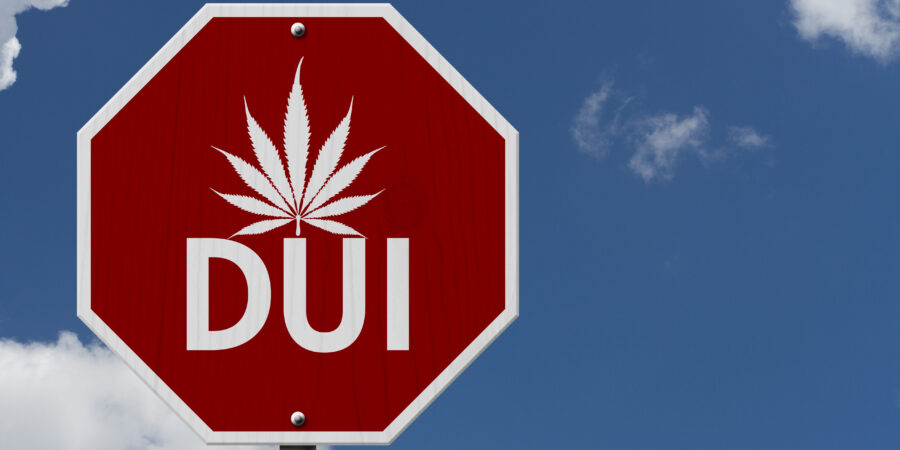Understanding Marijuana DUIs in California
Since the passage of Proposition 64 in 2016, marijuana use has essentially been decriminalized in California. The Adult Use of Marijuana Act makes it legal for anyone age 21 or over to use and possess the substance within certain parameters. Not surprisingly, perhaps, decriminalization has increased the general public’s use of the drug, causing more people to operate vehicles while under its influence.
Although using and possessing cannabis is generally legal under California law, operating a vehicle while impaired by it is illegal. However, establishing proof of impairment isn’t as straightforward as with alcohol. As a result, drivers who may not actually be impaired by the substance can be arrested for DUI.
California Law Regarding Driving Under the Influence of Cannabis
In California, it is illegal to operate a vehicle while under the influence of drugs or alcohol. Per California Vehicle Code Section 23162(f) VC, it is against the law to drive while under the influence of cannabis and other drugs, whether they are legal or illegal. Therefore, even if you have a prescription for cannabis, you can be convicted of a DUID – driving under the influence of drugs. It’s no different than driving under the influence of other mind-altering prescription medications. Just because a doctor prescribes it doesn’t mean it’s okay to operate a vehicle while using it.
A critical difference between drunk driving convictions and DUIDs is that per se statutes apply for the former. If a driver is found to have a blood alcohol content, or BAC, of 0.08% or higher, they are considered to be legally impaired. In California, no similar benchmark has been established for how much tetrahydrocannabinol, or THC, is detected in someone’s system, so law enforcement and prosecutors must present additional evidence to prove such charges.
A few other states have established benchmarks for THC levels in driver’s bloodstreams. For example, in Washington State, a driver is considered to be impaired by cannabis use with a THC blood content level of 5 nanograms per milliliter or higher. In Arizona, drivers with even trace amounts of THC in their system are automatically charged with DUI. In California, the legislature has made attempts to establish per se statutes for THC levels in the blood; one proposal, which was rejected, set the benchmark at 2 nanograms per milliliter.
Evidence Used to Convict Drivers of Marijuana Impaired Driving in California
Chemical Testing
Although chemical testing alone isn’t enough proof that a driver is under the influence of cannabis, drivers are still subject to such testing if they are stopped by law enforcement and suspected of driving while impaired. Under California law, all drivers provide implied consent for undergoing chemical testing in such situations by virtue of operating a motor vehicle. As the saying goes, “driving is a right, not a privilege.”
Therefore, if you are stopped by police and suspected of driving under the influence of cannabis, you will be asked to submit to a blood test. Failure to do so may result in jail time and other penalties.
One of the inherent problems with testing someone’s blood for THC is that although the high obtained from smoking or consuming cannabis products lasts an hour or two, the substance can remain in the blood for several days. As a result, habitual users may always have trace amounts of THC in their blood, making it difficult for prosecutors to prove that they were actively impaired when they were stopped by law enforcement.
Driving Conduct
Many people suspected of driving under the influence of cannabis are initially stopped due to erratic driving behavior. This behavior is documented in the police report and may be presented in court as evidence of impaired driving.
Objective Evidence
Prosecutors may also present objective evidence collected by arresting officers to demonstrate that someone was impaired while operating a motor vehicle. As with alcohol, law enforcement may conduct field sobriety tests to determine if a suspect is impaired when they are stopped. By interacting with the driver, officers may note other forms of objective evidence, including the odor of cannabis in the car, physical symptoms like red eyes and a driver’s admission of recent cannabis use.
Drug Recognition Expert Testimony
In a suspected impaired driving situation, the arresting officer may call in a Drug Recognition Expert, or DRE officer, to collect further evidence of a driver’s impairment. There are approximately 1,500 DRE officers in California, and they undergo specialized training to learn to recognize signs of drug impairment. They use 12-step examinations, which include taking vital signs and performing field sobriety tests, to collect evidence that may be used in court against suspected impaired drivers.
Elements Required to Establish Marijuana Impaired Driving Convictions in California
Under California law, prosecutors must prove several elements to establish a conviction for impaired driving under the influence of drugs. They must show that the defendant was:
- driving the vehicle
- under the influence of drugs
- exhibiting impaired driving behavior
Additional penalties may apply if drugs are found in the vehicle at the time of the arrest. However, with the decriminalization of cannabis in California, officers don’t tend to enforce drug possession laws for small amounts of the drug. With that being said, if enough of the drug is found in the vehicle, a driver could face steep additional penalties, including a felony conviction.
Penalties for DUIDs in California
Being convicted of driving while under the influence of drugs like cannabis in California can drastically affect your life, which is why it’s crucial to enlist the help of an experienced DUID attorney as soon as you can.
Penalties for first-offense DUIDs in California include:
- jail time ranging from 2 days to 6 months
- administrative per se driver’s license suspension, effective immediately after arrest
- additional suspension of driver’s license for up to 6 months following conviction
- mandatory safety classes at defendant’s expense
- fines and costs ranging from $1,800 on the low end to more than $15,000 on the high end
Penalties increase with subsequent DUID convictions. You may face additional jail time, increased fines and longer suspension of your driving privileges.
If the amount of THC in your system or vehicle is small, you may only face misdemeanor charges. On the other hand, if you have a prior driving while intoxicated felony conviction, are facing your fourth succeeding driving while under the influence offense or cause an accident injury to a third party, you may face felony charges.
Alcohol DUIs vs. DUIDs
Some of the main differences between alcohol-impaired driving charges and drug-impaired driving charges include the following:
- Per Se Statutes – Unlike alcohol-impaired driving scenarios, there is no official benchmark establishing impaired driving while under the influence of cannabis. Therefore, you may be considered to be driving while impaired even with trace amounts of THC in your system.
- Zero Tolerance Regardless of Age – Similarly, zero tolerance laws apply to all drivers suspected of driving under the influence of drugs. With alcohol, zero tolerance applies to drivers under the age of 21.
- Additional Drug Possession Charges – If you are stopped and arrested for driving while under the influence of cannabis and have drugs in your vehicle, you may also face additional drug possession charges. As a result, you will also need to defend yourself against those charges, which can considerably increase your case complexity.
Drive Responsibly
Trace amounts of THC may remain in the blood for several days after it is smoked or consumed in the form of edibles. Urine tests are even more problematic because they can detect trace amounts of THC for weeks after use.
It is important that drivers know and understand the law when it comes to DUI’s. With the advancement of cell phone technology, more specifically, Uber & Lyft, there are no excuses to impaired driving. Drive responsibly to ensure not only your safety, but those around you as well.
Hire a Skilled California Attorney Today
If you or a loved one has fallen victim to someone driving under the influence, you are entitled to seek compensation for your damages. It is important that you seek medical assistance, contact the police, and keep track of all evidence to help strengthen your claim. Speak to one of our experienced personal injury attorneys today for further legal assistance.



